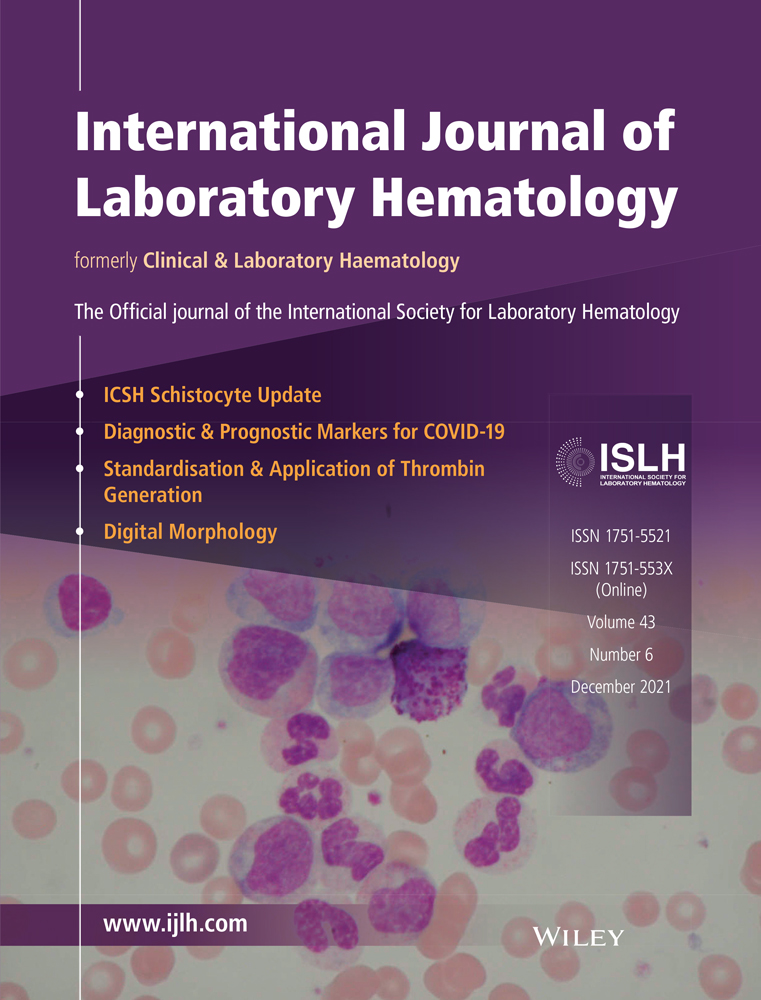BCR-ABL1 p210 screening for chronic myeloid leukemia in patients with peripheral blood cytoses
Abstract
Introduction
Chronic myeloid leukemia (CML) usually presents with leukocytosis with neutrophilia, left shift, and basophilia. Documentation of the BCR-ABL1 fusion is required for diagnosis, and this is often achieved via p210 BCR-ABL1 real-time polymerase chain reaction (RT-PCR).
Methods
Patients undergoing first-time testing for p210 BCR-ABL1 at our institution were retrospectively identified. The medical record was reviewed, and the patient age, sex, clinical indication for testing, and concurrent CBC with differential were identified for 518 patients. BCR-ABL1 p210 testing had been performed using a laboratory-developed quantitative RT-PCR assay. Statistical analysis of the results was performed using an unpaired t test, and P values of <.05 were considered statistically significant.
Results
Twenty-four patients received a new diagnosis of CML (4.6%). As compared to patients with a negative PCR, these patients were more likely to have a markedly elevated white blood cell count (WBC), neutrophilia, and a mild anemia. Ninety-two percent (22/24) of new CML patients had a WBC ≥20 × 109/L, and the two new CML patients with WBC <20 × 109/L had basophilia in the peripheral blood. By contrast, 92% (449/490) of non-CML patients had a WBC <20 × 109/L.
Conclusion
The peripheral blood parameters of total WBC ≥20 × 109/L and absolute basophil count can help guide the need for BCR-ABL1 PCR testing, which can lead to more judicious test utilization, decreased healthcare costs, and decreased false positives, while keeping a high sensitivity for CML. This study also underscores the importance of obtaining a complete differential in patients for whom CML is suspected.
CONFLICT OF INTEREST
The authors declare that they have no conflict of interest.
Open Research
DATA AVAILABILITY STATEMENT
The data that support the findings of this study are available on request from the corresponding author. The data are not publicly available due to privacy or ethical restrictions.




